 W
WK. Saraswathi Amma was a Malayalam feminist writer whose short stories have been anthologised in translation in several American texts. According to critic Jancy James, "In the entire history of women's writing in Kerala, Saraswathi Amma's is the most tragic case of the deliberate neglect of female genius."
 W
WIla Arab Mehta is a Gujarati novelist and story writer from Gujarat, India.
 W
WJasodhara Bagchi was a leading Indian feminist critic and activist.
 W
WVidya Bal was a Marathi feminist writer/editor from Maharashtra, India. She was a social activist particularly in the area of equalization of the social status of women vis-à-vis men in India.
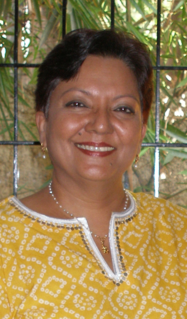 W
WSrilatha Batliwala, a social activist, advocate of women's rights, scholar, and author of many books on empowerment of women is from Bengaluru, Karnataka, India. From the later part of the 1970s she has been engaged in linking "grassroots activism, advocacy, teaching, research, training," obtaining grants, and works of scholarly nature.
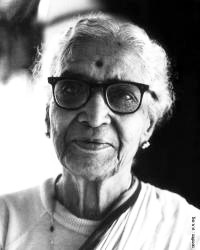 W
WMalati Vishram Bedekar was a Marathi writer from Maharashtra, India. She was the first prominent feminist writer in Marathi literature. She also used pseudonym Vibhavari Shirurkar (.
 W
WRokeya Sakhawat Hossain, commonly known as Begum Rokeya, was a Bengali feminist thinker, writer, educator and political activist from British India. She is widely regarded as a pioneer of women's liberation in South Asia.
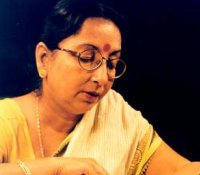 W
WSuchitra Bhattacharya was an Indian novelist.
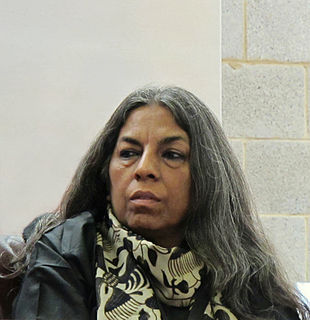 W
WUrvashi Butalia is an Indian feminist writer, publisher and activist. She is known for her work in the women's movement of India, as well as for authoring books like the path-breaking The Other Side of Silence: Voices from and the Partition of India and Speaking Peace: Women's Voices from Kashmir.
 W
WUma Chakravarti is an Indian historian and filmmaker. Beginning in the 1980s, Chakravarti wrote extensively on Indian history indulging with issues relating to gender, caste, and class, publishing seven books over the course of her career. Her body of work mostly focused on the history of Buddhism, and that of ancient and 19th century India.
 W
WIpsita Roy Chakraverti is a Wiccan priestess based in India. Born into an elite family in India with a diplomat for a father and royalty for mother, Chakraverti spent her early years in Canada and the US where her father was stationed. There, she was allowed to join a select group of women studying ancient cultures of the world and the old ways. Chakraverti studied with them for three years and finally chose Wicca as her religion. After coming back to India and getting married, Chakraverti declared herself as a witch in 1986. Amidst the backlash that followed her declaration, Chakraverti explained to the media the Neo Pagan ways of Wicca and its healing power.
 W
WC.S. Chandrika is an Indian author in Malayalam from Kerala who writes fiction and non-fiction and is also a social scientist, activist, and columnist involved in women’s and human rights and environmental and development concerns.
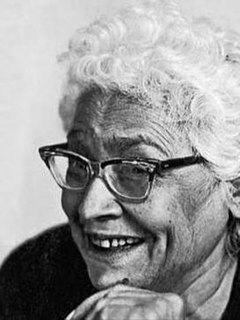 W
WIsmat Chughtai was an Indian Urdu novelist, short story writer, and filmmaker. Beginning in the 1930s, she wrote extensively on themes including female sexuality and femininity, middle-class gentility, and class conflict, often from a Marxist perspective. With a style characterised by literary realism, Chughtai established herself as a significant voice in the Urdu literature of the twentieth century, and in 1976 was awarded the Padma Shri by the Government of India.
 W
WDinesh Nandini Dalmia, also written as Dineshnandini Dalmia, was an Indian poet, short story writer and novelist of Hindi literature. She was the fifth wife of Ramkrishna Dalmia, founder of the Dalmia Group, and three of his four previous wives were still alive and married to him when she became his fifth wife. Nevertheless, she positioned herself in opposition to gender discrimination and purdah system, and published poems, prose poems, short stories and novels on the theme of women's emancipation. Shabnam , Niraash Aasha, Mujhe Maaf Kama and Yeh Bhi Jhooth Hai are some of her notable works. The Government of India awarded her the third highest civilian honour of the Padma Bhushan, in 2006, for her contributions to literature. In 2009, India Posts released a commemorative stamp on her.
 W
WNeera Desai was one of the leaders of Women's Studies in India and was noted for her contributions as a professor, researcher, academician, political activist, and social worker. She founded the first of its kind Research Centre for Women’s Studies and the Centre for Rural Development in 1974. She joined the SNDT Women's University in 1954 and was a part of various governing bodies as a professor and the Head of Department of Sociology (post-graduate).
 W
WDr. J. Devika is a Malayali historian, feminist, social critic and academician from Kerala. She currently researches and teaches at the Centre for Development Studies, Thiruvananthapuram as a Professor. She has authored several books and articles on gender relations in early Kerala society. She is bilingual and has translated both fiction and non-fiction books between Malayalam and English. She also writes on gender, politics, social reforms and development in Kerala on publications like Kafila, Economic and Political Weekly and The Wire.
 W
WLeela Dube was a renowned anthropologist and feminist scholar, fondly called Leeladee by many. She was the widow of anthropologist and sociologist Shyama Charan Dube and a younger sister of the late classical singer Sumati Mutatkar. She is survived by two sons, Mukul Dube and Saurabh Dube. Known for her work on kinship and in women's studies, she wrote several books including Matriliny and Islam: religion and society in the Laccadives and Women and kinship: comparative perspectives on gender in South and South‑east Asia.
 W
WNawab Begum Faizunnesa Choudhurani was Zamindar of Homnabad-Pashchimgaon Estate in present-day Comilla District, Bangladesh. She is most famous for her campaign for female education and other social issues. In appreciation of her social work, in 1889 Queen Victoria awarded Faizunnesa the title of "Nawab", making her the first female Nawab in South Asia.
 W
WV. Geetha is an Indian feminist activist who writes on issues related to caste, gender, education and civil rights. She operates from Madras and has carried out research on the nature and proliferation of NGOs operating in Tamil Nadu. She has set up the federation of women's groups in the state and is also the editorial director at Tara Books. Other than this, she has translated two of Perumal Murugan's novels into English. Based on her research, she has observed that "Violence as an experience seemed to me to represent a point of intersection of trajectories of hurt, touch, love, fear, hunger and shame. It seemed to inhere as much in the grime of every day life, in habitual tone, gesture and touch, as it did in the particular and determined act of violence."
 W
WJayati Ghosh is an Indian development economist. She is the Chairperson of the Centre for Economic Studies and Planning at the Jawaharlal Nehru University, New Delhi and her core areas of study include international economics, employment patterns in developing countries, macroeconomic policy, and issues related to gender and development.
 W
WPadma Gole was a Marathi poet from Maharashtra, India born in patwardhan family of Tasgaon. She was one of the many women from rich Indian families who were emboldened by the Gandhian movement to become feminist writers. Her poetry was heavily influenced by the writings of Ram Ganesh Gadkari, Tryambak Bapuji Thombre, and Yashwant Dinkar Pendharkar. Much of Padma's poetry depicts the domestic lives of Indian middle-class women.
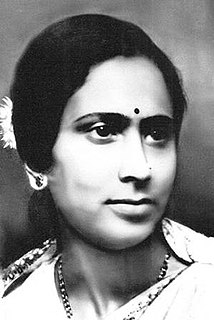 W
WGowramma (1912–1939), better known as Kodagina Gowramma, was an Indian writer who wrote in Kannada and lived in Kodagu. She was also a feminist and a supporter of the Indian Freedom Movement.
 W
WJagdish Chandra Jain was a scholar, indologist, educationist, writer, and freedom fighter during the freedom struggle of India. He authored over 80 books on a variety of subjects, including Jain philosophy, Prakrit literature, and Hindi textbooks for children. Jain was the chief prosecution witness in Gandhi's murder trial. He repeatedly tried to warn the government of the conspiracy to assassinate Mahatma Gandhi, which became to known to him after Madan Lal Pahwa, a Punjabi refugee and one of the conspirators of the murder of Mahatma Gandhi, confided to him of their plan. Jain's attempts to warn the government met deaf ears. He recounted his personal experiences in two books: I Could Not Save Bapu and The Forgotten Mahatma. He died from cardiac arrest in July 1993 in Bombay at the age of 84.
 W
WIlavenil Meena Kandasamy is an Indian poet, fiction writer, translator and activist from Chennai, Tamil Nadu, India.
 W
WKundanika Kapadia was an Indian novelist, story writer, and essayist from Gujarat.
 W
WBrinda Karat is an Indian politician, elected to the Rajya Sabha as a Communist Party of India (Marxist) member on 11 April 2005 for West Bengal.
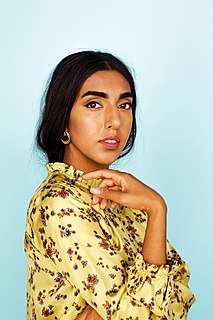 W
WRupi Kaur is an Indian-born Canadian poet, illustrator, and author. Kaur rose to fame on Instagram and Tumblr through sharing her short visual poetry.
 W
WKondapalli Koteswaramma was an Indian communist leader, feminist, revolutionary, and writer born in 1918 in Pamarru, Andhra Pradesh.
 W
WC. S. Lakshmi is an Indian feminist writer and independent researcher in women's studies from India. She writes under the pseudonym Ambai.
 W
WMalladi Subbamma born in Pothardhakam in Repella of Guntur district. She was a feminist writer, rationalist, and editor of Stree Swetcha. She worked for the upliftment of women by focusing on their education. She became a prominent figure in united Andhra Pradesh, after spearheading the Anti-liquor movement. The movement became a huge success and a prohibition on the sale of alcohol in the state was implemented in 1994. As the head of the Institute of Advancement of Women, she conducted many study camps to educate women. She was an avid proponent of humanism, for that she traveled throughout the country to propagate the same. In 2012, she sold her belongings and donated the proceeds to the building dedicated for Center for Women's Studies at University of Hyderabad on International Women's Day. She has authored about 110 books and 500 articles, mainly on Women's empowerment other women's issues.
 W
WNivedita Menon is an Indian feminist writer and a professor of political thought at Jawaharlal Nehru University, Delhi. She previously taught at Lady Shri Ram College and the Department of Political Science at Delhi University. She is known for strong positions on several political issues, including nuclear power and the Kashmir conflict.
 W
WMeghna Pant is an Indian author, journalist and speaker. She has won awards for her contribution to literature, gender issues and journalism, including the Frank O’Connor International Award and the Commonwealth Short Story Prize.
 W
WRochelle Potkar is an Indian fiction writer and poet based in Mumbai, Maharashtra, India. Her first book, The Arithmetic of breasts and other stories was shortlisted for The Digital Book of the Year Award 2014, by Publishing Next. Four Degrees of Separation is her first book of poetry. She has represented India at the University of Iowa's International Writing Program and was a writer-in-residence at the UNESCO city of literature – Iowa's International Writing Program (IWP), Fall Residency 2015.
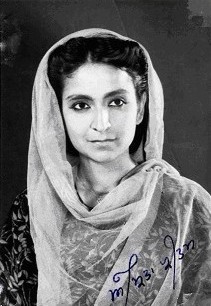 W
WAmrita Pritam; listen (help·info); 31 August 1919 – 31 October 2005) was an Indian novelist, essayist and poet, who wrote in Punjabi and Hindi. She is considered the first prominent female Punjabi poet, novelist, essayist and the leading 20th-century poet of the Punjabi language, who is equally loved on both sides of the India–Pakistan border. With a career spanning over six decades, she produced over 100 books of poetry, fiction, biographies, essays, a collection of Punjabi folk songs and an autobiography that were all translated into several Indian and foreign languages.
 W
WRamabai Ranade was an Indian social worker and one of the first women's rights activists in the 19th century. At the age of 11, she was married to Justice Mahadev Govind Ranade, who was a distinguished Indian scholar and social reformer. In that era of social inequality, women were not allowed to go to school and become literate.
 W
WMuppala Ranganayakamma is a leading Telugu Rationalist-Marxist writer and critic.
 W
WSharmila Rege was an Indian sociologist, feminist scholar and author of Writing Caste, Writing Gender. She led the Krantijyoti Savitribai Phule Women's Studies Centre, at University of Pune which position she occupied since 1991. She received the Malcolm Adiseshiah award for distinguished contribution to development studies from the Madras Institute of Development Studies (MIDS) in 2006.
 W
WKamini Roy was a Bengali poet, social worker and feminist in British India. She was the first woman honours graduate in British India.
 W
WSarojini Sahoo is an Indian feminist writer, a columnist in The New Indian Express and an associate editor of Chennai-based English magazine Indian AGE. She has been enlisted among 25 Exceptional Women of India by Kindle Magazine of Kolkata. and is an Odisha Sahitya Academy Award winner.
 W
WSaral Sarkar, born 10 May 1936 in West Bengal, is an Indian-German academic and eco-socialist political activist. Sarkar taught at the Goethe Institute in Hyderabad from 1966 to 1981, as a lecturer in German. Since 1982, Sarkar has been based in Cologne, and has been a prominent figure in the European ecology and peace movement. Sarkar was also the secretary of the local Green Party of Cologne. In the 1980s, The United Nations University commissioned Sarkar to conduct an authoritative study of the Green movement in West Germany. His resultant two-volume study, Green-Alternative Politics in Federal Republic of Germany was published in 1993. Sarkar was prominent in the anti-globalization movement from 1997 to 2005 and in active in political debate. Sarkar's writings, in both English and German have been widely disseminated in numerous journals and his works have been published in English, Chinese, French and German.
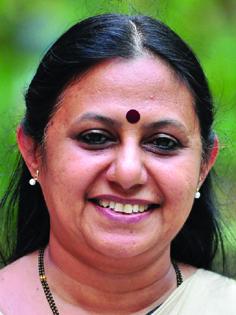 W
WDr T. N. Seema ഡോ. ടി .എൻ സീമ is an Indian social worker, teacher, and politician who was an MP from Rajya Sabha elected from Kerala from 2010 to 2016 for the Communist Party of India (Marxist).
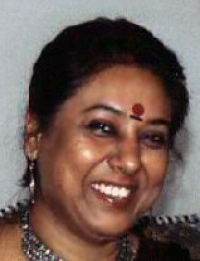 W
WMallika Sengupta was a Bengali poet, feminist, and reader of Sociology from Kolkata, known for her "unapologetically political poetry".
 W
WVandana Shiva is an Indian scholar, environmental activist, food sovereignty advocate, and anti-globalization author. Based in Delhi, Shiva has written more than 20 books.
 W
WVijaya Dabbe was an Indian writer, feminist, scholar and critic in Kannada language. Often credited as the first feminist writer in modern Kannada language, Dabbe was one of the prominent figures in feminist movement in Karnataka.